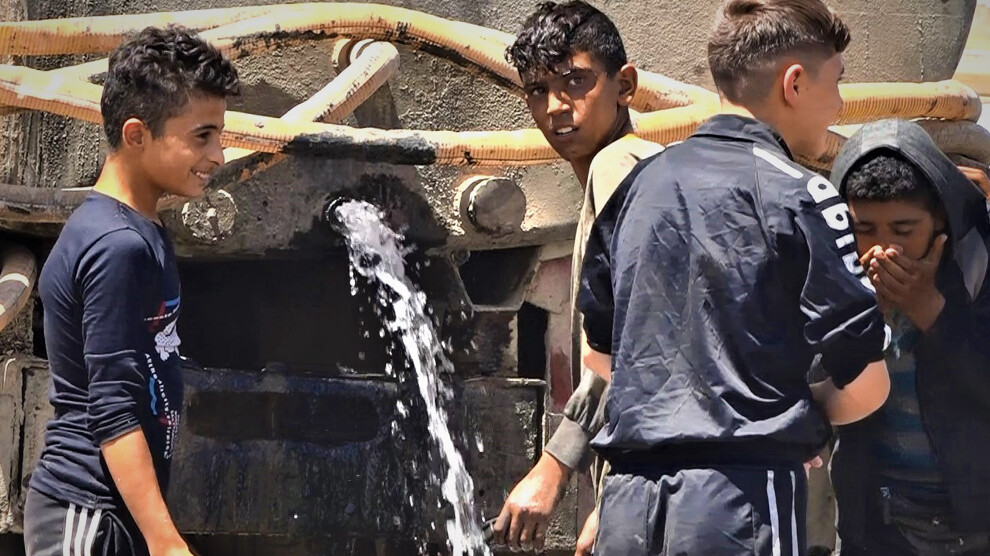The people of Hesekê have been left without water for more than a week due to the Turkish occupation and the attacks of their mercenaries on the electricity networks of the Alouk water station.
Speaking to ANHA, residents of Hesekê drew attention to the fact that the Turkish occupation worsened water shortages, which is one of the main sources of life, with the increase in temperature in the summer.
In its meeting on 10 July 2010, the UN approved the decision that everyone has the right to receive water within the framework of human rights and that water is an untouchable fundamental right. However, the Turkish state continues to use water as a means of pressure against the people of the region.
'Water as a new weapon'
The residents of Hesekê said that the Turkish occupation and its mercenaries used water as a weapon against them to kill them out of thirst.
Yehya Hemê, co-chair of Hasekê Water Authority, said that the water coming from Alouk station has decreased by 50 percent due to the attacks on the cable networks.
Speaking about the mechanism of water delivery to the neighbourhoods, Hemê said: "We used to give water to all the neighbourhoods of the city on a daily basis, but now and when the water does not come from the station, the mechanism has changed and we can provide water at half the rate."
The residents of the neighbourhood also underlined that the owners of private water tanks took advantage of this situation and brought them water at high prices. Many said that they cannot afford to buy water because the price of a 5-liter barrel is between 7 thousand and 8 thousand Syrian liras.
Hesekê Water Directorate works in coordination with municipalities and assemblies to implement the water distribution mechanism to the neighbourhood through neighbourhood communes to eliminate the water shortage.
Hemê said: "Our aim is to ensure that everyone has access to water."














